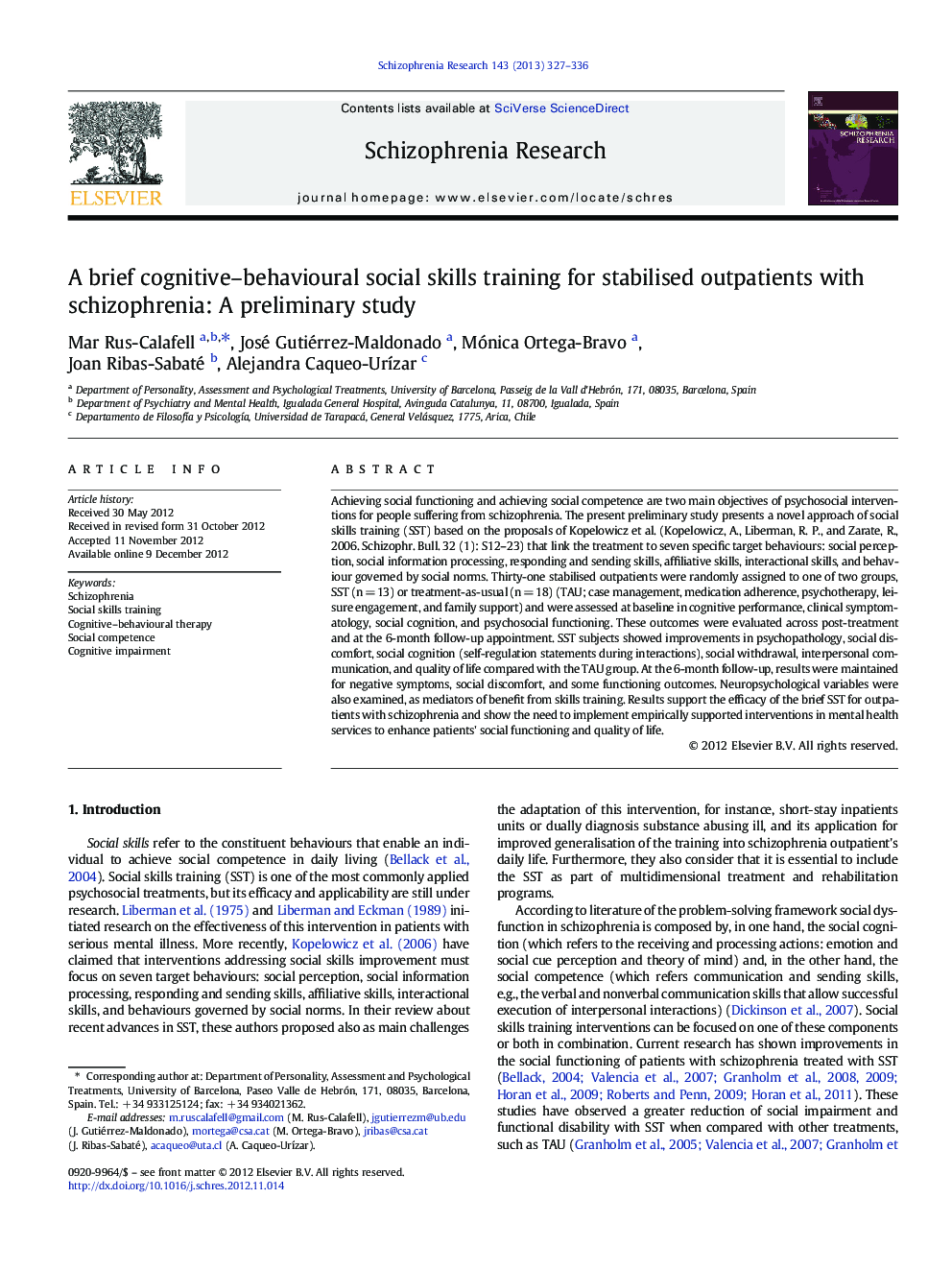| Article ID | Journal | Published Year | Pages | File Type |
|---|---|---|---|---|
| 341379 | Schizophrenia Research | 2013 | 10 Pages |
Achieving social functioning and achieving social competence are two main objectives of psychosocial interventions for people suffering from schizophrenia. The present preliminary study presents a novel approach of social skills training (SST) based on the proposals of Kopelowicz et al. (Kopelowicz, A., Liberman, R. P., and Zarate, R., 2006. Schizophr. Bull. 32 (1): S12–23) that link the treatment to seven specific target behaviours: social perception, social information processing, responding and sending skills, affiliative skills, interactional skills, and behaviour governed by social norms. Thirty-one stabilised outpatients were randomly assigned to one of two groups, SST (n = 13) or treatment-as-usual (n = 18) (TAU; case management, medication adherence, psychotherapy, leisure engagement, and family support) and were assessed at baseline in cognitive performance, clinical symptomatology, social cognition, and psychosocial functioning. These outcomes were evaluated across post-treatment and at the 6-month follow-up appointment. SST subjects showed improvements in psychopathology, social discomfort, social cognition (self-regulation statements during interactions), social withdrawal, interpersonal communication, and quality of life compared with the TAU group. At the 6-month follow-up, results were maintained for negative symptoms, social discomfort, and some functioning outcomes. Neuropsychological variables were also examined, as mediators of benefit from skills training. Results support the efficacy of the brief SST for outpatients with schizophrenia and show the need to implement empirically supported interventions in mental health services to enhance patients' social functioning and quality of life.
